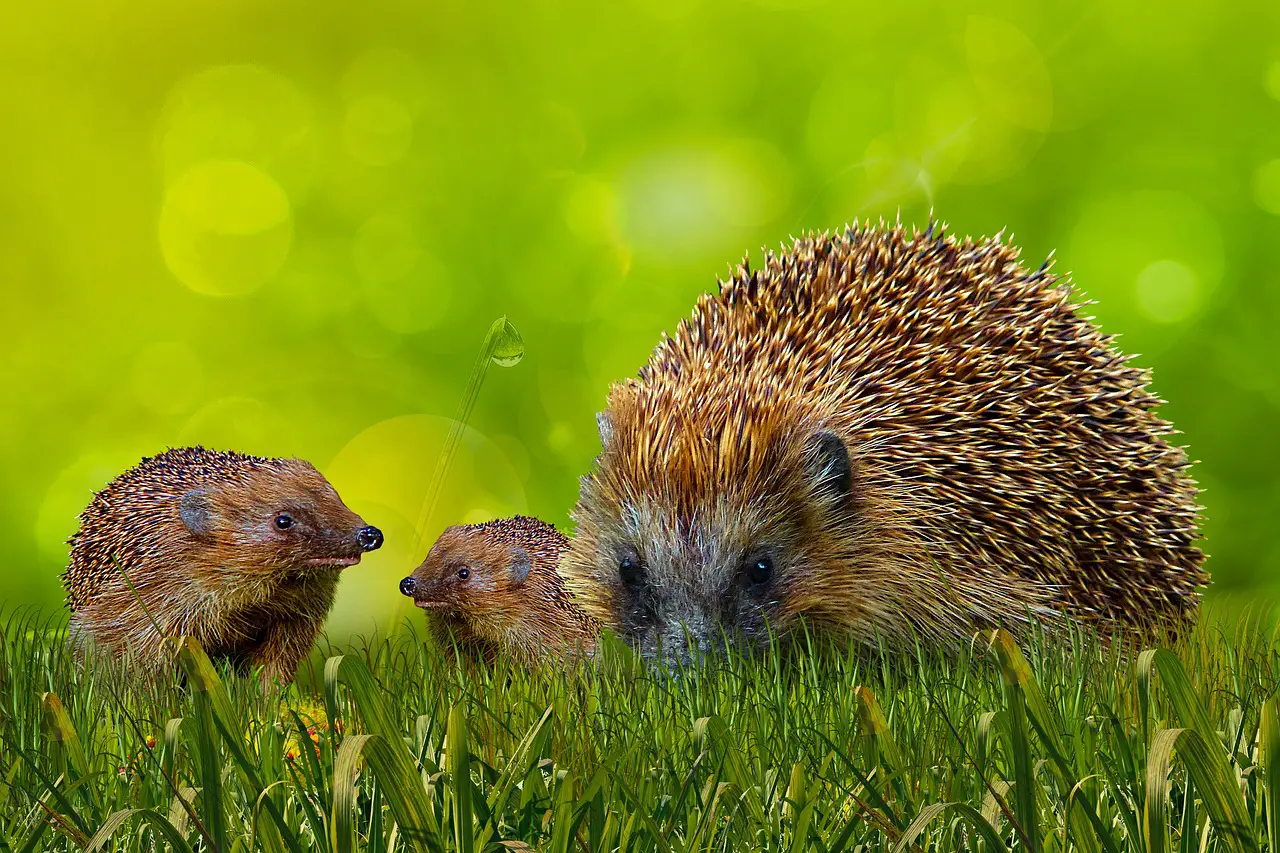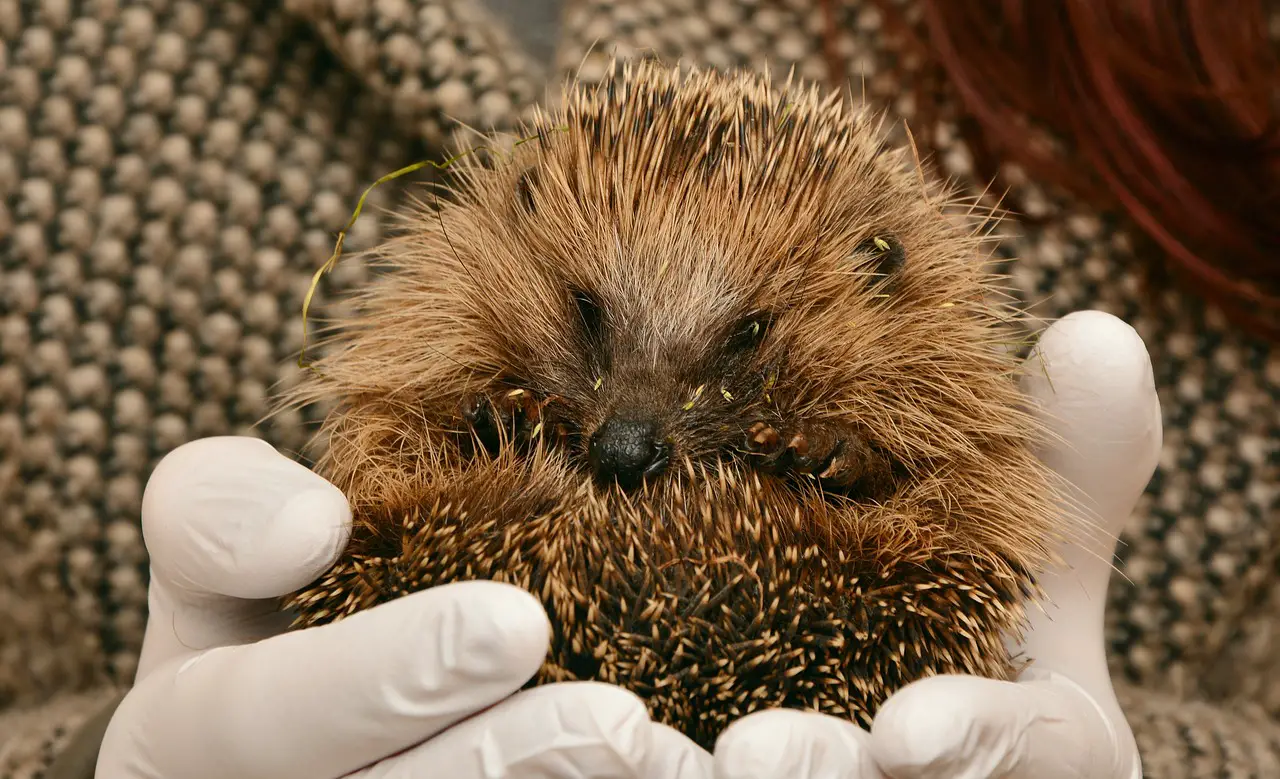Are you searching for an extraordinary and endearing pet to brighten up your home? Look no further than the adorable and unique hedgehog! Hedgehogs have become increasingly popular as pets, captivating animal lovers with their cute appearance and engaging personalities.
Do Hedgehogs Make Good Pets? In this article, we will explore the appeal of hedgehogs as pets, discuss important considerations before getting one, guide you in preparing their habitat, provide insights into their nutrition and feeding, offer tips on handling and bonding, address health care and common issues, and conclude with frequently asked questions.
You may also want to know how to handle a hedgehog.
Do Hedgehogs Make Good Pets?
Unique and Adorable Creatures
Hedgehogs are undeniably charming and have a distinctive appearance with their spiky quills and small snouts. Their cute and pudgy bodies make them irresistible to many pet enthusiasts. With their endearing features, hedgehogs are sure to bring a smile to your face.
Low Maintenance and Space Requirements
If you’re looking for a pet that doesn’t require constant attention, hedgehogs are a great choice. They are relatively low maintenance and don’t need as much space as larger pets. Hedgehogs are suitable for small living spaces, making them ideal for apartment dwellers or those with limited room.

Engaging and Entertaining Personalities
Despite their small size, hedgehogs possess vibrant personalities. They are curious and active creatures that enjoy exploring their surroundings. Watching them as they forage, play, and display their unique behaviors can be highly entertaining and enjoyable.
Considerations Before Getting a Hedgehog
Researching Local Laws and Regulations
Before deciding to bring a hedgehog into your home, it’s crucial to research local laws and regulations regarding their ownership. In some areas, hedgehogs may be prohibited or require special permits.
Understanding Hedgehog Needs
Properly caring for a hedgehog entails understanding their specific needs. They require a suitable habitat, proper nutrition, and regular veterinary care. Familiarize yourself with their dietary requirements, temperature preferences, and socialization needs to ensure a happy and healthy hedgehog.
Financial Responsibilities
Owning a hedgehog comes with financial responsibilities. Consider the costs associated with purchasing the hedgehog, providing a proper habitat, supplying quality food and bedding, and scheduling regular veterinary check-ups.
Preparing the Hedgehog’s Habitat
Choosing the Right Cage
When it comes to housing your hedgehog, select a cage that provides ample space for exercise and exploration. Opt for a cage with solid flooring to prevent their delicate feet from getting stuck in wire mesh.
Providing Appropriate Bedding and Hideouts
Create a comfortable and secure environment for your hedgehog by providing appropriate bedding materials, such as fleece liners or paper-based bedding. Offer a variety of hideouts and tunnels to fulfill their natural instinct to burrow and provide a sense of security.
Temperature and Lighting Considerations
Maintaining the appropriate temperature and lighting is essential for your hedgehog’s well-being. Provide a temperature-regulated environment within the recommended range of 73-80°F (23-27°C). Use a heat source, such as a ceramic heat emitter, to achieve the optimal temperature.
Nutrition and Feeding
A Balanced Diet for Hedgehogs
A balanced and nutritious diet is crucial for the overall health of your hedgehog. Feed them a combination of high-quality commercial hedgehog food, supplemented with fresh fruits, vegetables, and occasional protein sources.

Suitable Food Options
Offer a variety of suitable food options to ensure a well-rounded diet for your hedgehog. Some recommended choices include mealworms, crickets, cooked chicken, apples, carrots, and leafy greens. Avoid foods that are toxic or potentially harmful to hedgehogs, such as chocolate, caffeine, and sugary treats.
Feeding Schedule and Portions
Establish a consistent feeding schedule for your hedgehog. Offer food in the evening or during their active hours. Provide appropriate portion sizes to prevent overfeeding or obesity, ensuring your hedgehog maintains a healthy weight.
Handling and Bonding with Your Hedgehog
Establishing Trust and Building a Relationship
Do Hedgehogs Make Good Pets? Building trust and a strong bond with your hedgehog takes time and patience. Start by allowing your hedgehog to become accustomed to their new surroundings and scent. Gradually introduce gentle handling, using slow movements to avoid startling them.
Proper Handling Techniques
When handling your hedgehog, it’s important to use gentle and secure techniques. Support their body with both hands, being careful of their quills. Avoid squeezing or placing pressure on their delicate abdomen.
Socializing and Enrichment Activities
Hedgehogs benefit from social interaction and mental stimulation. Engage with them through gentle play, interactive toys, and supervised exploration time outside their enclosure. This helps keep them mentally and physically active.
Health Care and Common Issues
Regular Veterinary Check-ups
Schedule regular veterinary check-ups for your hedgehog to ensure they remain in good health. A knowledgeable exotic pet veterinarian can conduct thorough examinations, provide necessary vaccinations, and address any concerns or health issues.
Recognizing Signs of Illness
Being vigilant and aware of your hedgehog’s behavior is crucial for detecting signs of illness early on. Keep an eye out for symptoms such as changes in appetite, weight loss, lethargy, abnormal feces, or skin issues. If you notice any concerning signs, consult a veterinarian experienced in hedgehog care.
Preventative Measures
Maintain a clean and hygienic habitat for your hedgehog to minimize the risk of diseases or parasites. Regularly clean their cage, provide fresh bedding, and ensure proper sanitation of food and water dishes.
Frequently Asked Questions
- Are hedgehogs good pets for families with children?
- While hedgehogs can make great pets, they may not be suitable for very young children due to their delicate nature and specific care requirements. Supervision and gentle handling are essential.
- Do hedgehogs require a lot of exercise?
- Hedgehogs need regular exercise to maintain their physical and mental well-being. Providing them with ample space for exploration, toys, and supervised out-of-cage time can fulfill their exercise needs.
- Can hedgehogs be litter trained?
- Yes, hedgehogs can be litter trained with patience and consistency. Provide a litter box with appropriate bedding material and encourage them to use it by placing their droppings inside.
- Do hedgehogs have a strong odor?
- Hedgehogs have a mild musky odor, but with proper cleaning and care, it can be minimized. Regular cage cleaning and occasional baths can help keep their scent under control.
- Are hedgehogs noisy pets?
- Hedgehogs are generally quiet animals. They make minimal noise, except for occasional snuffling or hissing sounds when they feel threatened or alarmed.
Conclusion
Do Hedgehogs Make Good Pets? In conclusion, hedgehogs make charming companions and delightful additions to your home. Their unique appearance, low maintenance requirements, and engaging personalities make them an appealing choice for pet enthusiasts.
However, it’s important to consider the legalities, research their specific needs, and be prepared to provide them with a suitable habitat, balanced nutrition, regular handling, and proper veterinary care. By understanding and meeting their requirements, you can enjoy the company of these adorable and intriguing creatures in your life.
